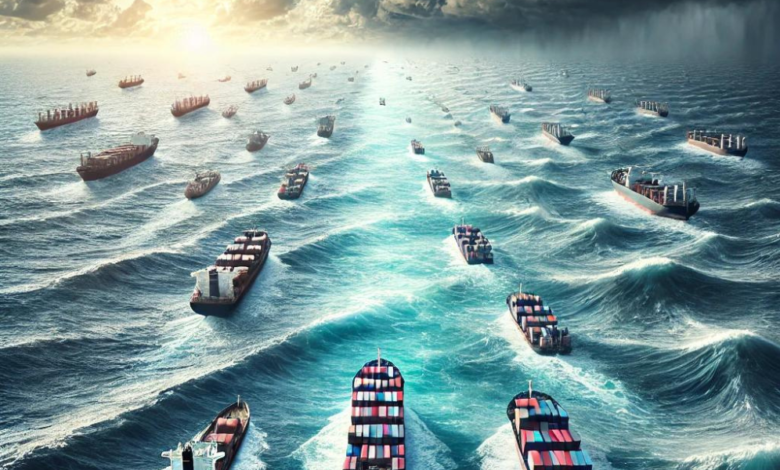Marine Reinsurance Faces New Challenges as Global Economy Recovers – Swiss Re

Marine Reinsurance Faces New Challenges as Global Economy Recovers – Swiss Re
Reinsurance
By Kenneth Araullo
As the conference season begins, the current marine reinsurance landscape is under the spotlight, as the global economy continues to recover from multiple shocks.
According to a report by Adam Watkins, Head of Marine and Energy at Swiss Re, the industry is at a critical moment to assess the changes taking place. While some patterns remain consistent with the past, new trends are emerging that are shaping the future of the sector.
Watkins identifies three key themes impacting the industry. These themes are interconnected and have both short- and long-term impacts on the marine insurance landscape, making risk management a critical focus for insurers.
Global trade confidence improves slightly in 2024 as the economy continues to recover from the recession caused by the COVID-19 pandemic, supported by stronger policy measures.
Get the latest reinsurance news straight to your inbox twice a week. Sign up here
According to Watkins, the United Nations Conference on Trade and Development (UNCTAD) estimates that global trade in goods will rise by 3.3% this year, a recovery from a 9.2% contraction in 2020 and a 2.4% growth in 2021.
Despite these signs of recovery, Watkins warned that trade confidence remains fragile. Consumer confidence remains low, and global trade remains vulnerable to macroeconomic and geopolitical shifts.
For example, the US-China trade war in 2019 led to a 15% drop in North American marine insurance premiums. Watkins stressed that these trends require close monitoring by marine insurers as they deal with the potential impact of changing circumstances on their portfolios.
Geopolitical tensions are a major factor affecting marine insurance, according to Watkins. In 2023, the United Nations reported the highest number of violent conflicts since World War II, with 110 million people displaced. Conflicts in Ukraine, Gaza and elsewhere, along with ongoing civil wars, are disrupting global supply chains.
Watkins noted that incidents such as Houthi rebel activity in the Red Sea, which forced ships to avoid the Suez Canal, have increased shipping costs and changed trade routes.
These disruptions, coupled with rising protectionism and the use of tariffs and sanctions, continue to impact the cost of goods and logistics.
Watkins stressed that insurers must remain vigilant and adapt to evolving trade laws and geopolitical conditions, especially in conflict-prone regions. Wars, strike cancellations and event restrictions have become critical to managing risk in these volatile regions.
Watkins also highlighted the importance of the energy sector for marine insurers and energy companies. The need to decarbonise is paramount, with global energy demand expected to increase by 50% by 2050, compared to 2019 levels.
The energy sector has responded with strategies such as improving operational efficiency and investing in renewable energy sources, but progress has been uneven.
Watkins noted that the energy transition presents both challenges and opportunities for insurers, and this emerging set of risks, focused on renewable energy and new technologies, will play an increasingly important role in insurance portfolios.
As global economic and geopolitical challenges continue to impact the marine reinsurance sector, Watkins stressed the need for insurers to remain adaptable and forward-looking, especially as new risks and opportunities emerge in the coming years.
What do you think of this story? Feel free to share your comments below.
Get the latest reinsurance news straight to your inbox twice a week. Sign up here






Fetching comments…